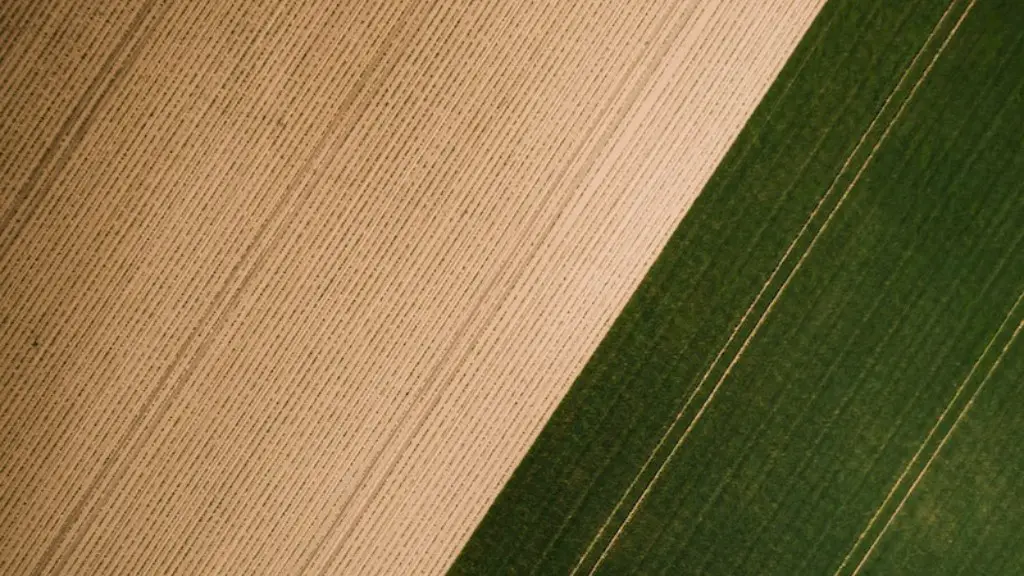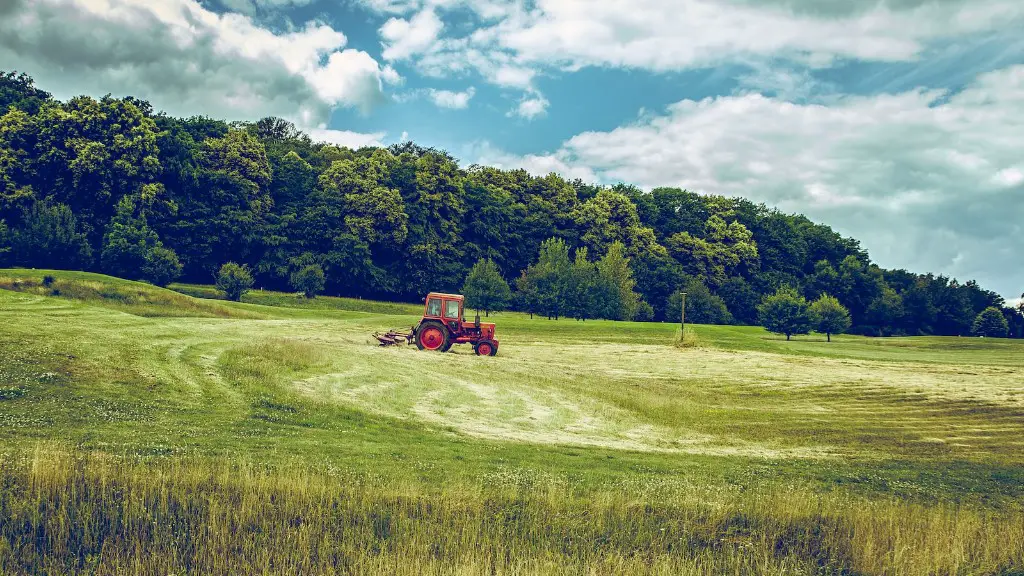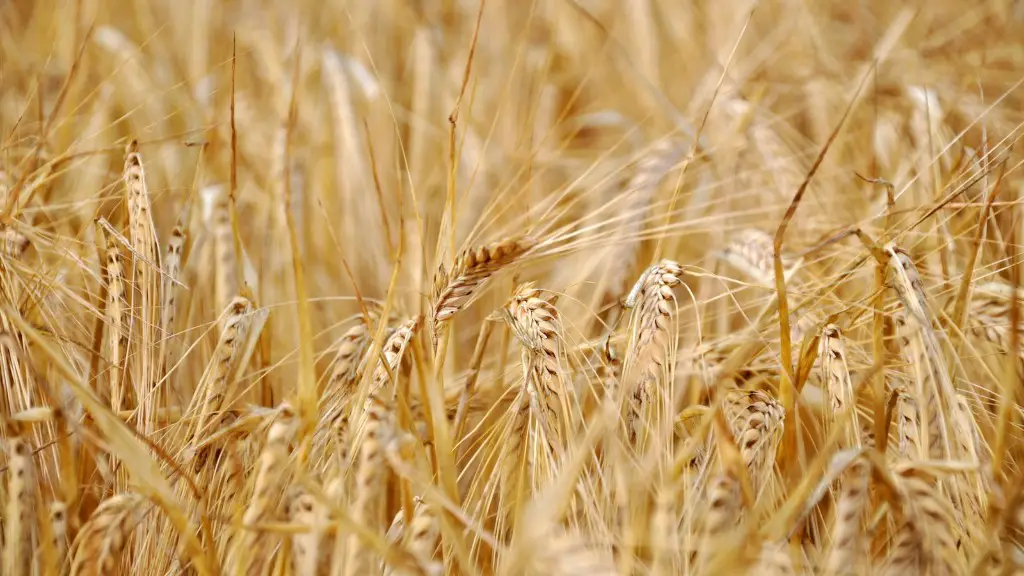Agriculture can be both beneficial and destructive to the health of the Great Barrier Reef. Agricultural activities, including the use of fertilizers, pesticides, and other chemicals, can cause coastal water pollution, which directly affects the marine life in and around the reef. Agricultural runoff and sedimentation from farming has the potential to reduce the amount of sunlight that is able to reach the reef—which can lead to a decrease in coral growth and biodiversity. Additionally, as land runoff enters the reef, it can carry excess nutrients, which can stimulate the growth of undesired and potentially damaging algae.
Another example of the impact of agriculture on the Great Barrier Reef is the threat of overfishing. The large-scale harvest of marine life can reduce the number of fish available to feed and breed, further reducing the health of the reef. If too much wildlife, including aquatic vegetation, are removed, the reef may be unable to recover. Overfishing can also take an economic toll, as the loss of marine population may reduce tourist visitation to the reef, which is a major source of local income.
Climate change is another important factor influencing the health of the Great Barrier Reef. As temperatures rise and ocean acidity increases, many species struggle to survive. Agricultural activities, such as burning crop residue or releasing nitrous oxide emissions, can contribute to the warming of the oceans. In the worst case scenarios, this can lead to coral bleaching and death.
Finally, land clearing for crops and other human activities can lead to runoff and erosion, which can also damage both the environment and the reef. Coastal runoff from agricultural land can lead to nutrient runoff, which provides a nutrient boost for algae. This increased growth can reduce the oxygen supply for fish, seagrasses, and corals, resulting in a decline in overall reef health.
Impact of Fertilizers on the Great Barrier Reef
Fertilizers are essential for crop growth, and much of this fertilizer runs off into the Great Barrier Reef Marine Park. The addition of nutrients to the marine environment can lead to eutrophication, which is the result of nutrient enrichment. This is because increased amounts of phosphorus and nitrogen cause a rapid growth of algae, resulting in a decrease of coral growth, food supply, and oxygen levels.
High levels of fertilizer runoff also have essential impacts on other aquatic species. Data from the Australian Institute of Marine Science has shown that there is an increase in damage to the coral, fish, and other organisms of the reef due to increased nutrient levels. The increased levels of nitrogen can also lead to changes in the water chemistry, which can reduce the ability of the corals to absorb calcium.
Finally, another effect of fertilizer runoff is the increase in sedimentation. This can be caused by soil erosion from intensive farming, as well as by fertilizer runoff itself. This sediment can smother the coral and decrease its ability to photosynthesize, leading to death. Additionally, when sediments settle to the bottom of a marine environment, it can reduce the water clarity, which prevents sunlight from reaching the corals.
Impact of Pesticides on the Great Barrier Reef
Pesticides are known to affect marine life, and can be particularly harmful to the delicate coral of the Great Barrier Reef. In particular, organophosphates, a type of pesticide, can be highly toxic to a wide range of aquatic species. A study from the University of Queensland found that exposure of the coral to organophosphates can lead to altered behavior, reproduction, and photosynthesis, leading to tissue damage and bleaching.
Pesticides are also thought to have an effect on the fish and other aquatic species of the Great Barrier Reef. For example, certain compounds used to treat marine pests and control fish populations can have negative impacts on the health of certain species. Additionally, the use of some chemical pesticides can lead to the inadvertent destruction of other aquatic species, as the chemicals can be harmful to other species.
In addition to its effect on marine life, pesticide runoff can also have a detrimental effect on the quality of the water. Runoff from agricultural land can carry these chemicals and ultimately enter the reef. This can cause an increase in water turbidity, as well as a decrease in the oxygen levels of the water. This can lead to a decrease in the biodiversity of the reef as many species struggle to survive.
Finally, pesticide runoff can also increase the amount of marine debris in the water, which can affect the health of both the coral and the fish. Marine debris can interfere with the normal behavior of fish and other marine life, resulting in lower reproductive rates, slow growth, and even death.
Impact of Agricultural Waste on the Great Barrier Reef
Agricultural waste is one of the most common sources of pollution in the Great Barrier Reef Marine Park. Agricultural waste such as livestock feces and crop residues can contain a variety of toxic chemicals, especially nitrogen-containing compounds, which can have a negative effect on the health of the reef. For example, high levels of nitrogen are linked to lower coral growth rates and increases in marine debris.
Agricultural waste can also disrupt the resident species of the reef and their behavior. Excess nutrients can stimulate algal growth, which can reduce the amount of light that reaches the coral, leading to bleaching and death. Additionally, the waste can introduce other toxins and compounds into the water, such as phosphates, which can further reduce the water quality.
When it comes to runoff, agricultural waste has the potential to cause considerable damage to aquatic habitats, as the large amounts of nitrogen and other nutrients can pollute the water. This can reduce the oxygen content of the water and lead to a decrease in species biodiversity. In fact, the Australian Institute of Marine Science has observed a decrease in sea grass growth due to the high levels of nitrogen.
Finally, agricultural waste can also lead to increased turbidity in the water, as the runoff will carry both sediment and pollutants. This can reduce the clarity of the water, resulting in a decrease in the photosynthetic process of the coral, leading to bleaching and death.
Impact of Sedimentation on the Great Barrier Reef
Sedimentation is a major source of harm for the Great Barrier Reef Marine Park, as it can cause a rapid decline in the health of the reef. Sedimentation is the process of deposition of sediment particles into an aquatic environment and it can occur due to runoff from agricultural lands, land clearing activities, and other human activities. This sediment can reduce the amount of light that reaches the reef, leading to a decrease in coral growth and a decrease in biodiversity.
In the case of land runoffs, the sediment can contain a number of potentially harmful chemicals, such as phosphates, nitrates, and other nutrients, which can lead to nutrient enrichment. This nutrient enrichment can have damaging effects on the reef, as it can lead to an increase in the growth of algae and a decrease in the oxygen levels of the water. Additionally, the hard particles of sediment can also cause physical damage to the coral.
Another harmful effect of sedimentation is the increase in coastal water turbidity. This can be caused by sediment deposits or the runoff of other agricultural byproducts. This reduction in water clarity prevents the sunlight from reaching the coral, which can lead to coral death and a decline in overall reef health.
Finally, one of the major ways that sedimentation can harm the reef is through the creation of algal mats on the surface of the coral. This can reduce the amount of oxygen available and increase the temperature of the water, both of which can cause coral decline. In addition, the sediment and algae can reduce the brightness of the water, resulting in a decrease in photosynthesis, further damaging the reef.




